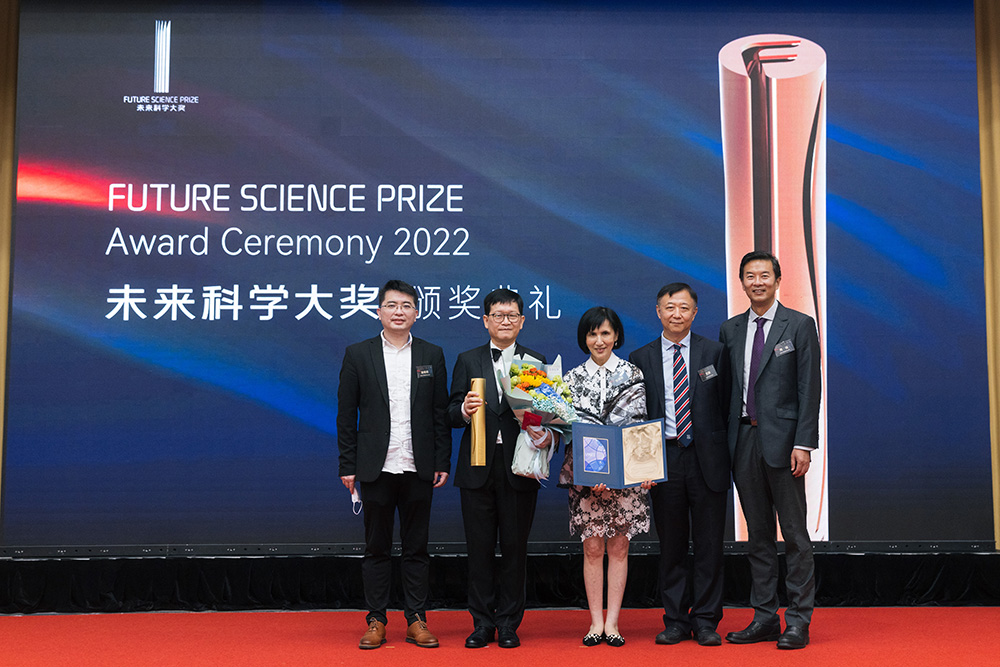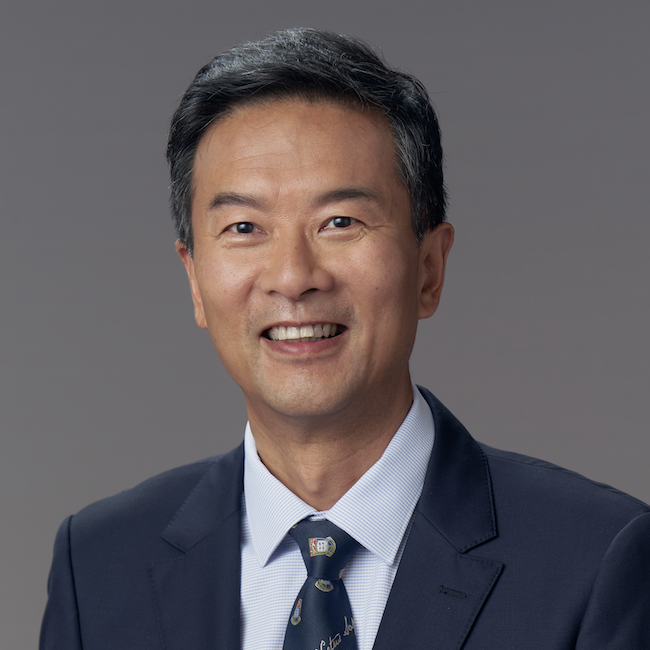May 2023 | Volume 24 No. 2
Landing in the Sweet Spot
When Professor Zhou Qiang took up deanship of the Faculty of Science last autumn, he arrived in a place with several stellar achievements. Six professorial staff were among the top one per cent of highly cited researchers in their fields in 2022 (according to Clarivate Analytics), and others are members of prestigious science academies abroad and in China. Faculty members have also led two major InnoHK programmes, six Areas of Excellence projects, a State Key Laboratory and three joint laboratories with the Chinese Academy of Sciences.
Where can he take things next?
For Professor Zhou, there is a clear-cut answer: to a place of wider and deeper impact and global reach, built on the opportunities now abounding as the Hong Kong government and HKU invest historic amounts of resources in science and innovation.
“Due to the many geopolitical conflicts and economic downturns in the world, Hong Kong is now situated at a sweet spot to attract top talent. This is really a good time to bring great scientists to HKU so we can thrive and make a big splash in Asia and the world,” he said.
Professor Zhou has made a splash himself through his groundbreaking research on viral-host interactions at the molecular level. He spent 27 years at the University of California, Berkeley, where he identified and characterised a number of human protein complexes that control both HIV and human host gene expression. Although originally thought to work only for the virus, these complexes turn out to have much broader implications for general gene expression and thus play a key role in human health and diseases such as cancer.
But he was lured away by the prospect of making an even bigger impact leading the Faculty at this promising time, and giving back to academia after years of receiving support from colleagues.
Room to improve
Since arriving last autumn, he has prioritised recruitment and expects to soon announce the appointment of several world-class scholars. This will be key to the Faculty’s future success, but he also wants to sharpen the Faculty’s strategy and direction.
“There are areas in the Faculty that perform very strongly such as Chemistry and Physics,” he said, but there are others he hopes to improve, such as strengthening research collaborations between the Faculty’s molecular and cellular biologists and biomedical scientists in the Li Ka Shing Faculty of Medicine and building up the Statistics Department to replace several recent retirements and departures. “Even for strong departments, I still feel we have room to improve,” he said.
He is keen to look after junior staff, too, such as simplifying the process for promotion and improving support for postdoctoral fellows and research assistant professors. “I want to improve the efficiency of the system so our scientists have higher morale and can concentrate more on doing research,” he said.
Education also gets high priority. He hopes HKU Science remains the top choice for students who want to study science in Hong Kong and hopes to increase the Faculty’s slate of international dual degree programmes with other top universities in the world.
More importantly, he wants to raise the status of science in society. “The attitude in Hong Kong towards science education is traditionally not very enthusiastic. I want students to see science as attractive and fashionable, and for them to feel a strong incentive to study in our Faculty instead of everybody crowding into medicine or finance,” he said. This will require investment in creating STEM-related job opportunities, but the Hong Kong government has already signalled support for scientific innovation and technology industries.

From left: Professor Yuan Xiaoming, Professor Mok Ngai-ming, Mrs Mok, Professor Gong Peng and Professor Zhou Qiang at the Future Science Prize Award Ceremony 2022.
Impact through translation
That support, plus the emphasis on societal impact in research performance and funding evaluations, is influencing the Faculty, too. Professor Zhou is pleased that Faculty members are now thinking beyond publications to the wider effects of their research, for example through the two InnoHK programmes at Hong Kong Science Park.
“Any translational value still rests solidly upon your original discovery because otherwise, you have nothing to translate or innovate,” he said. “But while basic research remains important, there are now mechanisms to make people think about how to use their discovery to make people’s lives better, such as curing diseases and solving social problems. This is really wonderful.”
Professor Zhou himself intends to continue doing research with his collaborators in Mainland China, which will also provide a distraction from daily administrative work alongside hiking around Hong Kong and enjoying classical music and opera concerts.
“I really like Hong Kong and I see an opportunity to do something impactful that will not only improve the University’s standing, but also the standing of Hong Kong science. It’s a good fit,” he said.
I see an opportunity to do something impactful that will not only improve the University’s standing, but also the standing of Hong Kong science.

PROFESSOR ZHOU QIANG

